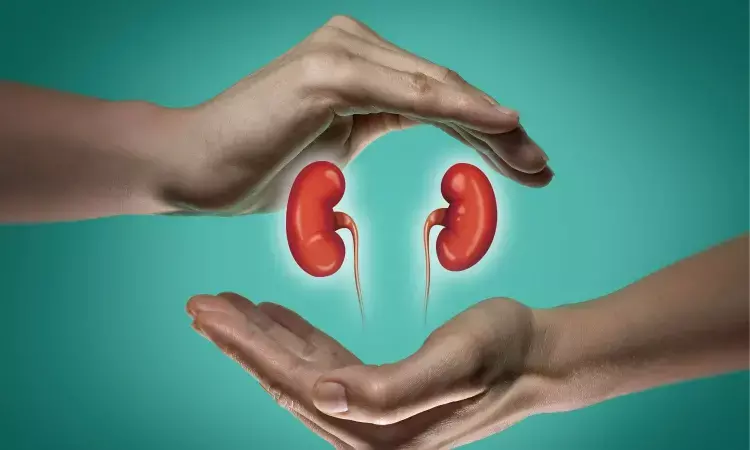- Home
- Medical news & Guidelines
- Anesthesiology
- Cardiology and CTVS
- Critical Care
- Dentistry
- Dermatology
- Diabetes and Endocrinology
- ENT
- Gastroenterology
- Medicine
- Nephrology
- Neurology
- Obstretics-Gynaecology
- Oncology
- Ophthalmology
- Orthopaedics
- Pediatrics-Neonatology
- Psychiatry
- Pulmonology
- Radiology
- Surgery
- Urology
- Laboratory Medicine
- Diet
- Nursing
- Paramedical
- Physiotherapy
- Health news
- Fact Check
- Bone Health Fact Check
- Brain Health Fact Check
- Cancer Related Fact Check
- Child Care Fact Check
- Dental and oral health fact check
- Diabetes and metabolic health fact check
- Diet and Nutrition Fact Check
- Eye and ENT Care Fact Check
- Fitness fact check
- Gut health fact check
- Heart health fact check
- Kidney health fact check
- Medical education fact check
- Men's health fact check
- Respiratory fact check
- Skin and hair care fact check
- Vaccine and Immunization fact check
- Women's health fact check
- AYUSH
- State News
- Andaman and Nicobar Islands
- Andhra Pradesh
- Arunachal Pradesh
- Assam
- Bihar
- Chandigarh
- Chattisgarh
- Dadra and Nagar Haveli
- Daman and Diu
- Delhi
- Goa
- Gujarat
- Haryana
- Himachal Pradesh
- Jammu & Kashmir
- Jharkhand
- Karnataka
- Kerala
- Ladakh
- Lakshadweep
- Madhya Pradesh
- Maharashtra
- Manipur
- Meghalaya
- Mizoram
- Nagaland
- Odisha
- Puducherry
- Punjab
- Rajasthan
- Sikkim
- Tamil Nadu
- Telangana
- Tripura
- Uttar Pradesh
- Uttrakhand
- West Bengal
- Medical Education
- Industry
Use of high-dose hemodiafiltration improves survival in individuals with kidney failure: NEJM

Netherlands: Researchers have found in the multinational, randomized, controlled trial involving 1360 kidney failure patients that high-dose hemodiafiltration resulted in a lower risk of death than conventional high-flux haemodialysis. The study is published in The New England Journal of Medicine.
Dr Blankestijn and team conducted the study for at least three months, ensuring that all the patients were eligible for a convection volume of at least 23 litres per session, requiring high-dose hemodiafiltration. Of 1360 patients enrolled, either the high-dose hemodiafiltration group (683 patients) or the high-flux hemodialysis group (677 patients) were randomly assigned.
The key findings of this study are:
- The study revealed that 17.3% of patients in the high-dose hemodiafiltration group experienced death from any cause, compared to 21.9% in the high-flux hemodialysis group.
- The hazard ratio of death from any cause for the hemodiafiltration group versus the hemodialysis group was 0.77 (95% confidence interval, 0.65 to 0.93).
- The median follow-up period was 30 months, during which the hemodiafiltration group achieved a mean convection volume of 25.3 litres per session.
The study's findings demonstrated an apparent substantial reduction in the risk of death from any cause suggesting the benefits of high-dose hemodiafiltration in improving clinical outcomes in patients with kidney failure resulting in kidney-replacement therapy.
The positive outcomes of this study concluded that high-dose hemodiafiltration had become a standard of care, highlighting its potential as a superior treatment option for individuals with kidney failure.
In further conclusion, the authors noted that high-dose hemodiafiltration is better than conventional high-flux haemodialysis in terms of survival rate and quality of life for those with kidney failure. They also suggested that more data and research should be explored in various healthcare settings to understand that patients with kidney failure may benefit from high-dose hemodiafiltration compared to standard hemodialysis.
Reference:
Blankestijn, Peter J et al. “Effect of Hemodiafiltration or Hemodialysis on Mortality in Kidney Failure.” The New England Journal of Medicine, 10.1056/NEJMoa2304820. 16 Jun. 2023. doi:10.1056/NEJMoa2304820
Dr. Chumbeni E Lotha has completed her Bachelor of Pharmacy from RIPANS, Mizoram and Doctor of Pharmacy from SGRRU,Dehradun. She can be reached at editorial@medicaldialogues.in
Dr Kamal Kant Kohli-MBBS, DTCD- a chest specialist with more than 30 years of practice and a flair for writing clinical articles, Dr Kamal Kant Kohli joined Medical Dialogues as a Chief Editor of Medical News. Besides writing articles, as an editor, he proofreads and verifies all the medical content published on Medical Dialogues including those coming from journals, studies,medical conferences,guidelines etc. Email: drkohli@medicaldialogues.in. Contact no. 011-43720751


